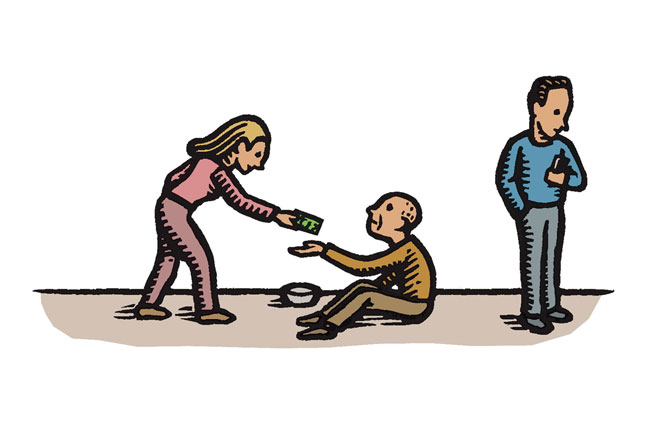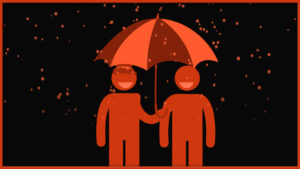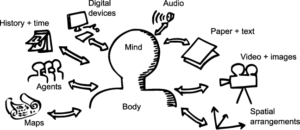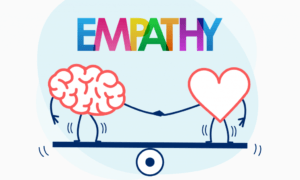Altruism is a word that gets thrown around a lot these days, and it can mean different things to different people. Some might think of altruism as the opposite of narcissism; others might think of it in religious terms or in terms of self-sacrifice. All these meanings are valid and all have their own merits, but we’re going to focus on what really counts: how you can be more altruistic in your everyday life!
Contents
What is Altruism?
Altruism is the act of selflessly helping others without expecting anything in return. It’s about putting other people first, even if it means sacrificing your own time, energy, or resources. Altruism can be exhibited in a variety of ways, from donating money or time to a good cause to simply being kind and compassionate towards others.
Why is Altruism Important?
Altruism is important because it makes the world a better place. It helps us connect with others, builds community, and creates positive change in the world. When we focus on helping others instead of ourselves, we shift our perspective from “me first” to “what can I do to make things better?” It’s an important mindset to adopt because it leads to meaningful connections with other people and ultimately, a happier life.
When you’re feeling down or unhappy, take some time for altruistic activities that make your heart feel good! There are countless ways you can be kinder and more selfless in everyday interactions with others—here are just a few:
- Volunteer your time at a local homeless shelter or soup kitchen.
- Donate clothes, books, or toys to a local charity.
- Write a letter to a soldier overseas.
- Smile and say hello to strangers.
- Pay for the person behind you in line at Starbucks.
- Give up your seat on the bus or subway for someone who needs it more.
There are endless opportunities to be altruistic, and the best part is that you don’t have to do anything big or dramatic! Small acts of kindness can make a huge difference in someone’s day, and they often come back around tenfold. So go out there and spread some love—the world needs it!
Examples of Altruism
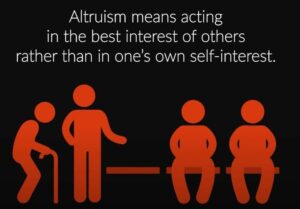
Here are some examples of things you can do for others:
- Donate blood or platelets
- Participate in a bone marrow drive
- Volunteer at a local animal shelter
- Offer to babysit your neighbor’s kids while she runs errands for an afternoon.
- Provide transportation to and from work for an elderly neighbor.
- Mow your elderly neighbor’s lawn for free.
- Shovel snow from their driveway, or run errands for them.
The possibilities are endless! Just find something that you’re passionate about and use it to help others. It can be as simple as that.
Being altruistic is one of the most beautiful things you can do for yourself and the world. It’s a way of living that puts others first, and it always comes back around in ways you never could have imagined. So go out there and make a difference!
Types Of Altruism
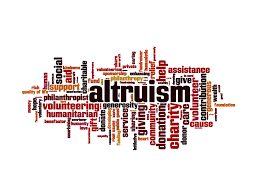
Here are some of the most common types:
- Spiritual altruism – Acting out of a feeling that there is more to life than just oneself.
- Altruistic suicide – The act by which one individual takes his or her own life for the benefit of others, such as in protest against political policies they feel violate their principles or to preserve the lives of others.
- Egoistic altruism – Helping another person at a cost to oneself.
- Kin selection altruism – The act of helping genetic relatives, even when it comes at a personal cost.
- Reciprocal altruism – A situation where two individuals help each other out, expecting that the favor will be returned in the future.
- Pure altruism – The selfless act of helping another individual without the expectation of anything in return, such as emotional satisfaction or a sense of duty to help others.
- Selfish altruism – Acting out on an impulse that is beneficial for both oneself and other individuals while expecting nothing from them in return.
- Genetic altruism – The tendency of individuals to help others because it is beneficial for the genes that they share with those others.
There are many different types of altruism, and each one is unique in its way. What’s important is that you find the type that resonates with you and use it to help others in whatever way you can.
Benefits of Altruism

Altruism has a variety of benefits for both the individual and society:
- Increases the well-being of others and creates a happier society.
- Encourages selflessness, which can impact your sense of happiness in life.
- Helps you establish meaningful connections with other people. These relationships could lead to romantic partnerships, friendships, or even business opportunities down the line!
- Creates stronger social bonds, which can help you achieve your goals.
- Helps foster a sense of belonging, increasing one’s quality of life.
Altruism has the potential to benefit everyone involved—you, other individuals, and society as a whole! It all comes down to doing what feels right for you. If it doesn’t feel natural at first, you can always practice. It may seem hard in the beginning, but it’ll get easier over time with a little bit of work!
How To Be More Altruistic?

There is no one-size-fits-all answer to this question, as the best way to be more altruistic will vary from person to person. However, here are a few tips on how you can get started:
- Find an activity that you’re passionate about and use it to help others.
- Start small and gradually increase the amount of time you spend helping others.
- Find something that feels right for your personality and go with it! You don’t have to drop everything to be altruistic; just pick one thing, like babysitting or running errands, and do it when you can. It all adds up over time!
- Be sure not to overwhelm yourself by choosing too many causes to support. Pick just one thing that you’re passionate about and focus on it for now!
- Surrounding yourself with altruistic people can make a huge difference in your mindset, which will allow you to be more helpful as well.
- Creating an environment where helping others is the norm will encourage altruism in others, and it all starts with you!
There are many different ways to be more altruistic, so find what works best for you and go from there. It’s important to do what feels right for you, as this will make the experience more fulfilling in the long run. Remember that every little bit counts, so don’t be afraid to get started!
More On Altruism
Evolution
Altruism is a behavior that has evolved. Scientists have found evidence of altruistic tendencies in humans and other primates, including chimpanzees, bonobos, gorillas, orangutans, and capuchin monkeys. They also discovered similar behaviors among dolphins. There are many theories on how helping individuals came to be through evolution, but one of the most popular is called “kin selection”.
The theory suggests that altruism developed because individuals who cared for their close relatives were more likely to protect themselves and reproduce. Helping others in your immediate family made it easier for you to pass down your genes.
Altruistic behavior was selected through evolution because it helped the population in the long run. Individuals who helped each other were more likely to survive, and this behavior continued over time because it was beneficial for everyone involved.
Brain-based rewards
It’s not just a feeling of satisfaction you get from being altruistic, either! Recent research shows that there are actual brain-based rewards associated with helping others.
When someone does something kind or helpful, the brain releases oxytocin, which is sometimes called the “cuddle hormone” because it’s released when people hug, touch, or make love. Oxytocin can also be stimulated through non-physical contacts, like warm thoughts or kind actions.
Oxytocin reduces anxiety and stress levels while increasing pain tolerance; it’s even been shown to help with depression! One study found that people who were introverts experienced similar effects from oxytocin as those who are extroverts.
Altruistic behavior also stimulates the brain’s reward system, which is why you feel good when you help someone else! It feels great to give and receive kindness, so don’t be afraid to try it out for yourself. Altruism doesn’t have to be complicated; just keep an open mind and do what works best for you.
Environment
The people you surround yourself with can have a huge impact on how altruistic you are. If your friends and family members don’t practice helping others, they might not understand why it’s so important to you.
You may need to limit the time spent around these individuals or find new ones who value giving back! Your environment must support your altruistic choices so you can feel successful.
You might also benefit from joining a group or club that supports helping others, like an animal shelter or volunteer organization. It’s nice to know other people care about making the world better too!
Social media has become another environmental influence on how we behave towards each other; it’s important to be careful what we post and share. Some studies have shown that people behave more altruistically after seeing positive posts on social media, while others indicate the opposite is true. Because it’s hard to tell exactly how our online interactions will affect us in real life, it might be best not to get too wrapped up in these platforms!
Social Norms
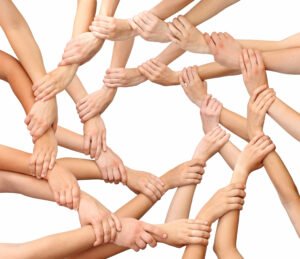
Social norms are perceptions about how other people behave, and they influence our behavior as well. If we think most of the population thinks helping others is important, chances are we’ll be more likely to do it too!
This doesn’t mean that you should change who you are or what you believe to fit into a mold; it just means that there are some things you can do to make being altruistic easier. For example, try volunteering with a group of people who have the same values as you.
There are also social norms around giving money to beggars on the street. Most people think it’s wrong to give them anything, but what if we changed our perspective?
What if we thought of giving money to beggars as a social norm? If enough people started doing it, then it would become the accepted thing to do. It might be hard to change someone’s opinion overnight, but with time and effort, anything is possible!
Self-image
How you see yourself can also affect how altruistic you are. If you think helping others is important, chances are you’ll be more likely to do it!
Self-image can also affect how we respond to people in need; if someone looks like us, for example, our first instinct might be to help them because they’re part of “our tribe.” This sentiment has major implications for how we should behave towards refugees and immigrants.
It’s important to remember that everyone is capable of being altruistic, no matter what their background or self-image maybe! Just because someone doesn’t fit into our idea of who a good person is, doesn’t mean they can’t help others in need.
Incentive

There are a lot of reasons to be altruistic, but one of the most important is that it feels good! Altruism reduces anxiety and stress levels while increasing pain tolerance; it’s even been shown to help with depression! One study found that people who were introverts experienced similar effects from oxytocin as those who are extroverted when they engaged in altruistic behavior.
That’s right; helping others can be good for you no matter who you are! So the next time you feel like doing something kind, don’t hold back. You’ll be glad you did.
Altruism is a great way to make yourself and the world around you a better place. It’s important to be altruistic because it feels good, makes us happy, and is the right thing to do. But don’t take our word for it; try it out for yourself! We think you’ll love it.
There are a lot of reasons to be altruistic, but one of the most important is that it feels good! Altruism reduces anxiety and stress levels while increasing pain tolerance; it’s even been shown to help with depression!
That’s right; helping others can be good for you no matter who you are! So the next time you feel like doing something kind, don’t hold back. You’ll be glad you did.
Impact Of Altruism On Mankind
We can improve our lives by being more altruistic like it’s been shown to reduce anxiety and stress levels while increasing pain tolerance; helping others has also even been known to help with depression! Altruism is a great way to make yourself and the world around you a better place. It’s important to be altruistic because it feels good, makes us happy, and is the right thing to do. Try it out for yourself! You won’t regret it.
Health

Altruism has been shown to reduce anxiety and stress levels while increasing pain tolerance. It can also help with depression. Helping others can be good for you no matter who you are! So the next time you feel like doing something kind, don’t hold back. You’ll be glad you did.
Morale
When we do something kind for someone else, it feels good. It makes us happy and is the right thing to do. Being altruistic gives us a sense of purpose in life and helps make the world a better place. Try it out for yourself! You won’t regret it.
Society
If enough people started doing something, it would become the accepted thing to do. It’s hard to change someone’s opinion overnight, but with time and effort, anything is possible! Our self-image can also affect how we respond to people in need; if someone looks like us, for example, our first instinct might be to help them because they’re part of “our tribe.” This sentiment has major implications for how we should behave towards refugees and immigrants.
Romantic Relationships

Altruism is also beneficial in romantic relationships. When one partner does something kind for the other, it strengthens the relationship and makes both partners happier! Being altruistic gives us a sense of purpose in life and helps make the world a better place. Try it out for yourself! You won’t regret it.
What Fosters Altruism?
There are a lot of things that can foster altruism. Religion is one factor that can encourage altruism; many religious texts preach the importance of helping others. Family dynamics also play a role. If a child is raised in a household where helping others is encouraged, they are more likely to be altruistic themselves. Peer pressure can also have an effect; if someone sees their friends doing something kind, they may be more likely to do the same. Finally, media exposure can influence how we behave. Seeing people do good deeds on TV or in movies can inspire us to be more altruistic.
Finding Inspiration
We can find inspiration in a variety of places. Religion is one factor that can encourage altruism; many religious texts preach the importance of helping others. Our family dynamics also play a role. If someone was raised in an environment where helping others is encouraged, they are more likely to be altruistic themselves. Peer pressure can also have an effect, if someone sees their friends doing something kind they may be more likely to do the same. Finally, media exposure can influence how we behave. Seeing people do good deeds on TV or in movies can inspire us to go out and help those around us.
Practicing Empathy
To be more altruistic, we need to practice empathy. Empathy is the ability to understand and share the feelings of another person. When we can put ourselves in someone else’s shoes, it makes it easier for us to help them out. We can also try volunteering or donating money to charity. Both of these activities allow us to help others while also improving our sense of well-being.
Altruism is a great way to make yourself and the world around you better! Try it out for yourself—you won’t regret it.
Setting A Goal

If we want to be altruistic, it’s important that we stay motivated. Try setting a goal for yourself and pick something small like donating $0.50 or helping someone with their groceries at the store. Make sure your goals are realistic; if you can’t reach them then try raising the stakes! Once you’ve accomplished your first goal, try setting another one and keep going. Before long, you’ll be an altruistic person!
Potential Pitfalls
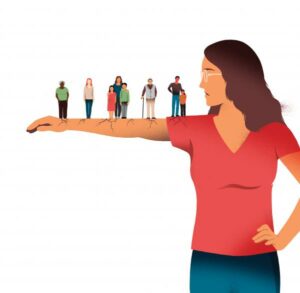
There are a few potential pitfalls to watch out for when it comes to altruism.
- One is that we can sometimes overestimate our ability to help others. It’s important not to take on more than we can handle, or else we might end up feeling overwhelmed and stressed.
- Another thing to watch out for is “compassion fatigue.” When we’re constantly helping others, we can start to feel drained and not as motivated. It’s important to take some time for ourselves every once in a while so we don’t get burnouts.
- Altruism can also lead to “fundamental attribution error.” This is when we attribute someone’s success or failures to innate traits rather than external factors. For example, if you’re running for a political office and your opponent does something bad it might seem like they did that because of who they are as a person—you don’t consider the fact that they might have just been having a bad day.
Make sure you don’t fall into this trap! Try to look at things from all angles and give people the benefit of the doubt.
Conclusion
Altruism is the principle that people cooperate to maximize their collective welfare. One can see it in everyday life, as well as among all types of organisms and social entities. Altruistic behavior may benefit either a person or another individual’s group, but it never benefits both simultaneously. The altruist gives up something for someone else without receiving any compensation from them in return because they have an urge to “help out”. This type of giving improves physical health, emotional stability, self-confidence, and general happiness levels. As you can see through this blog post about how neuroscience principles apply to marketing strategies, there’s plenty more we could talk about on the subject!
If you are looking for affordable Online Counseling MantraCare can help: Book a trial therapy session
